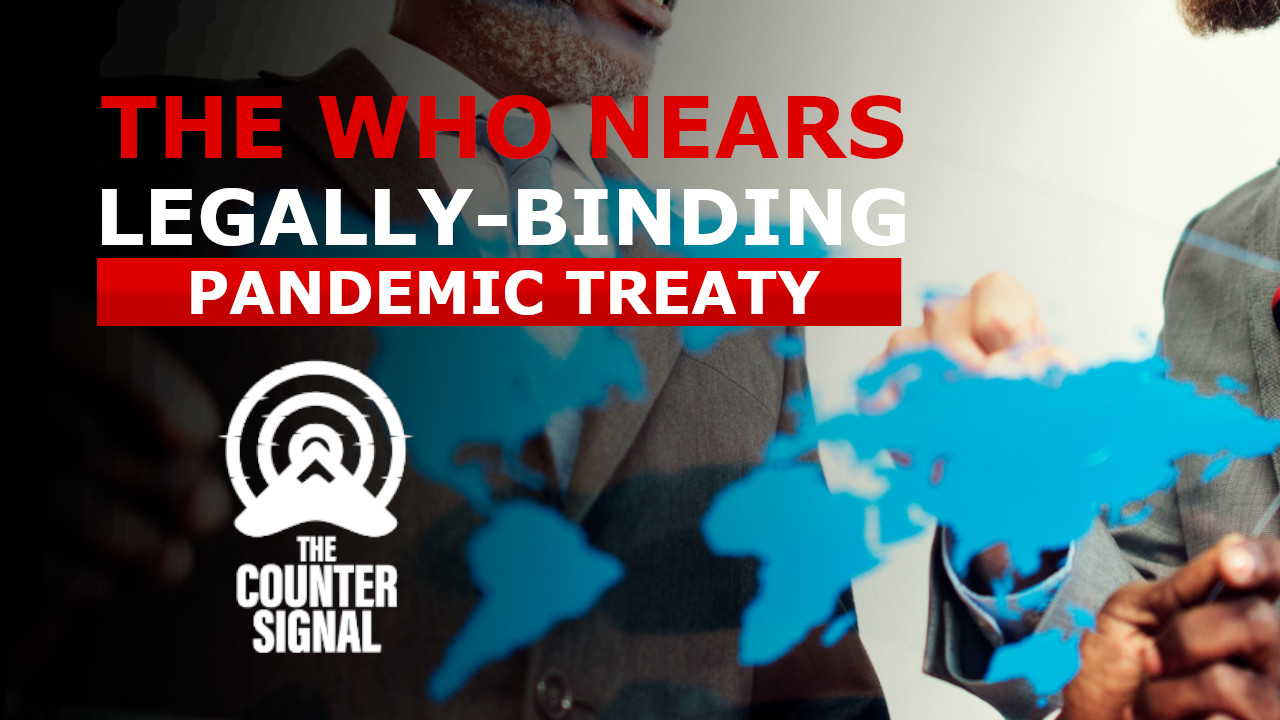by Mike Campbell, The Counter Signal:
 The World Health Organization (WHO) announced that member states inched closer to developing a legally binding global pandemic treaty.
The World Health Organization (WHO) announced that member states inched closer to developing a legally binding global pandemic treaty.
“I welcome the agreement by @WHO Member States to develop a zero draft of a legally binding #PandemicAccord designed to protect the world from future pandemics and to continue discussions on the draft in February 2023,” said WHO CEO Dr. Tedros Adhanom Ghebreyesus.
TRUTH LIVES on at https://sgtreport.tv/
I welcome the agreement by @WHO Member States to develop a zero draft of a legally binding #PandemicAccord designed to protect the world from future pandemics and to continue discussions on the draft in February 2023.https://t.co/ZnUqvrkMr3
— Tedros Adhanom Ghebreyesus (@DrTedros) December 8, 2022
The development follows a third meeting from WHO member states to develop a global pandemic treaty. The first meeting was in December 2021, and the second was in March 2022.
It’s unclear how the WHO’s pandemic treaty will affect its 194 member states, including Canada.
The WHO states the global pandemic treaty will determine future pandemic requirements for individual countries, such as lockdowns, and that these requirements will be “legally binding.”
The WHO says the treaty will be a “legal instrument, rooted in the WHO Constitution, designed to protect the world from future pandemics.”
Article 21 of the WHO’s constitution states the WHO has “authority to adopt regulations concerning (a) sanitary and quarantine requirements and other procedures designed to prevent the international spread of disease.”
“Other procedures” presumably include global vaccine passports, which member states have already supported.
However, the WHO also claims the pandemic treaty will “respect sovereignty.”
The draft that resulted from this third meeting includes a provision that reads:
“States have, in accordance with the Charter of the United Nations and the principles of international law, the sovereign right to determine and manage their approach to public health, notably pandemic prevention, preparedness, response and recovery of health systems pursuant to their own policies and legislation provided that activities within their jurisdiction or control do not cause damage to other States and their peoples.”
Read More @ TheCounterSignal.com




